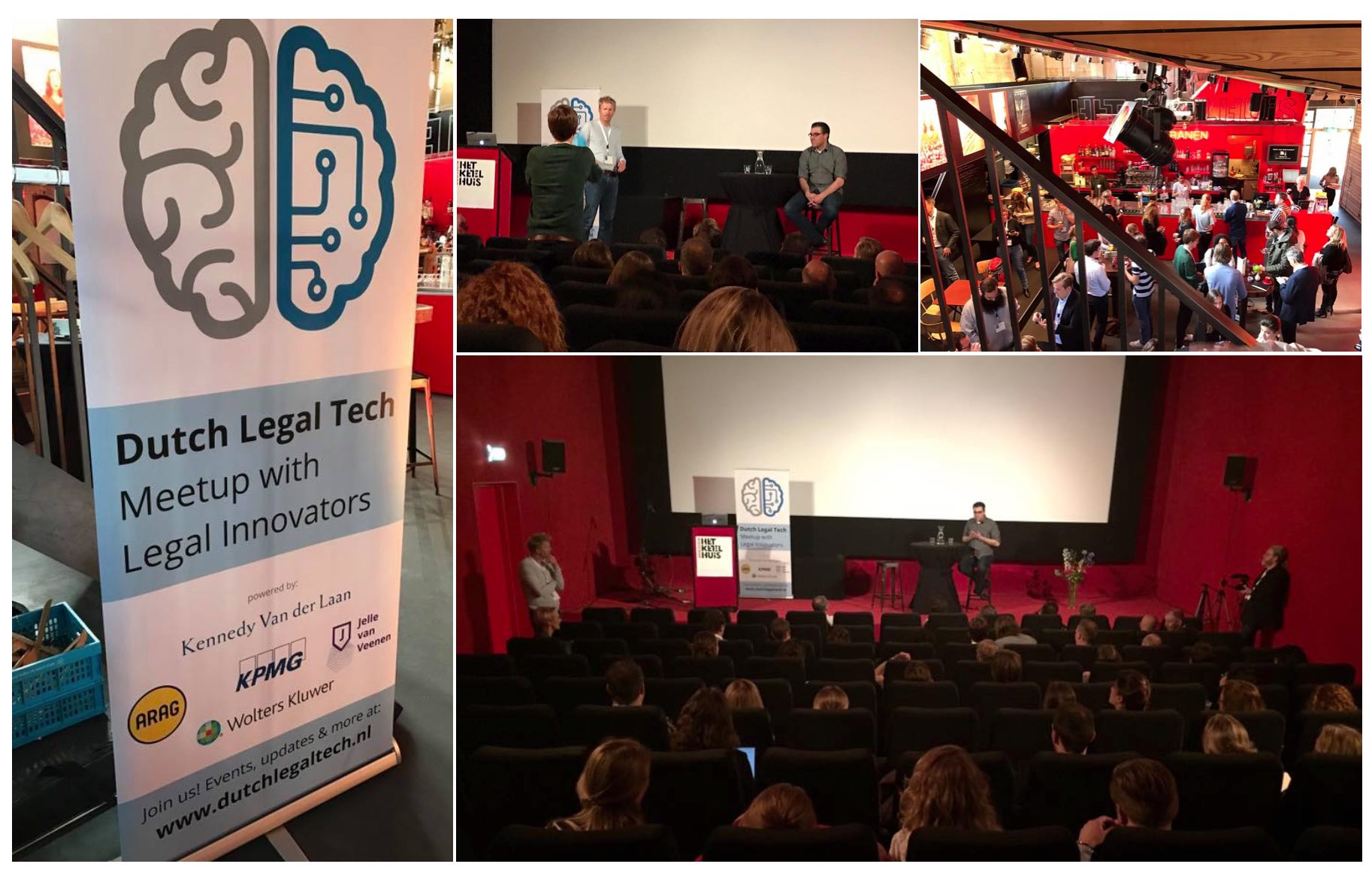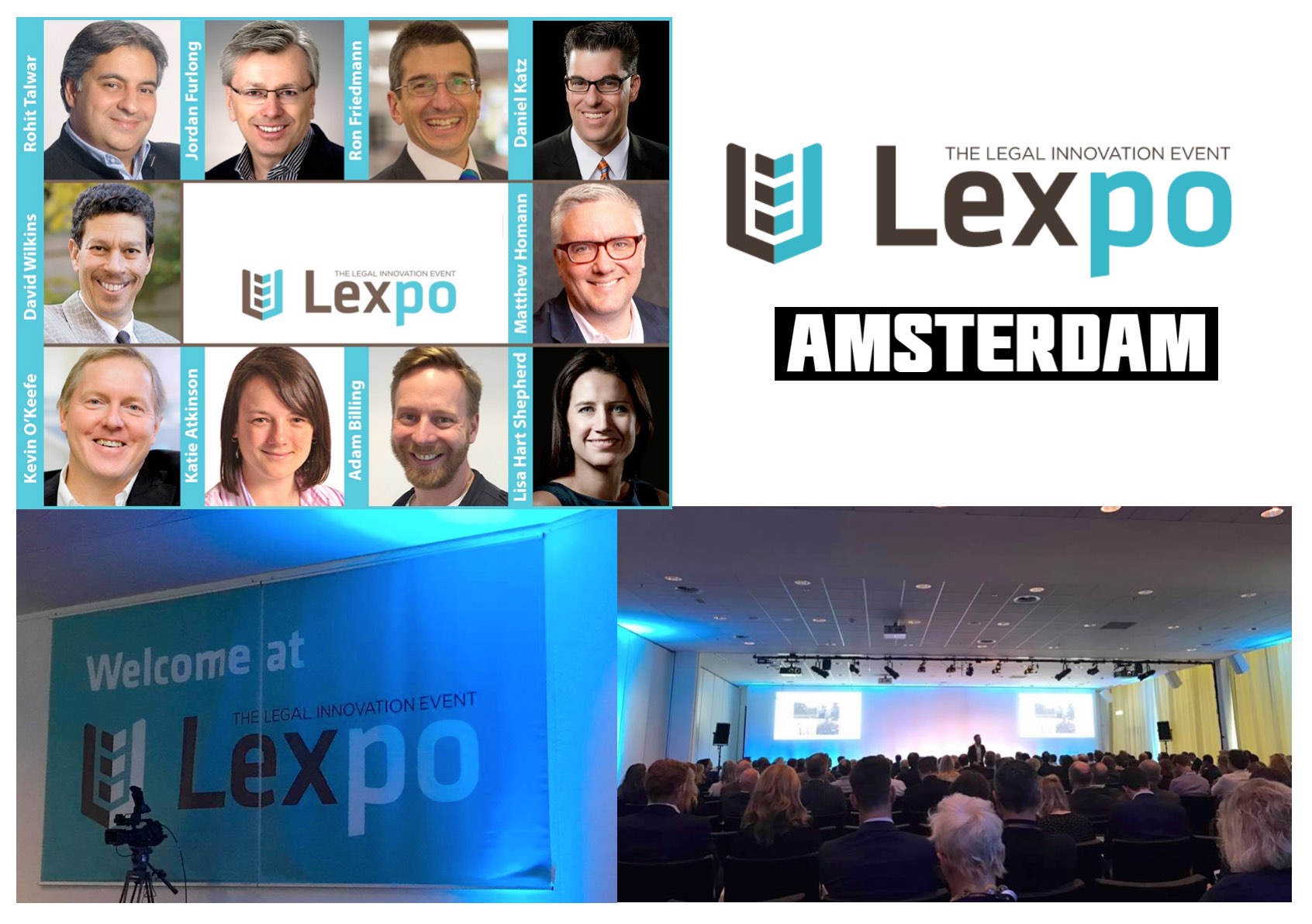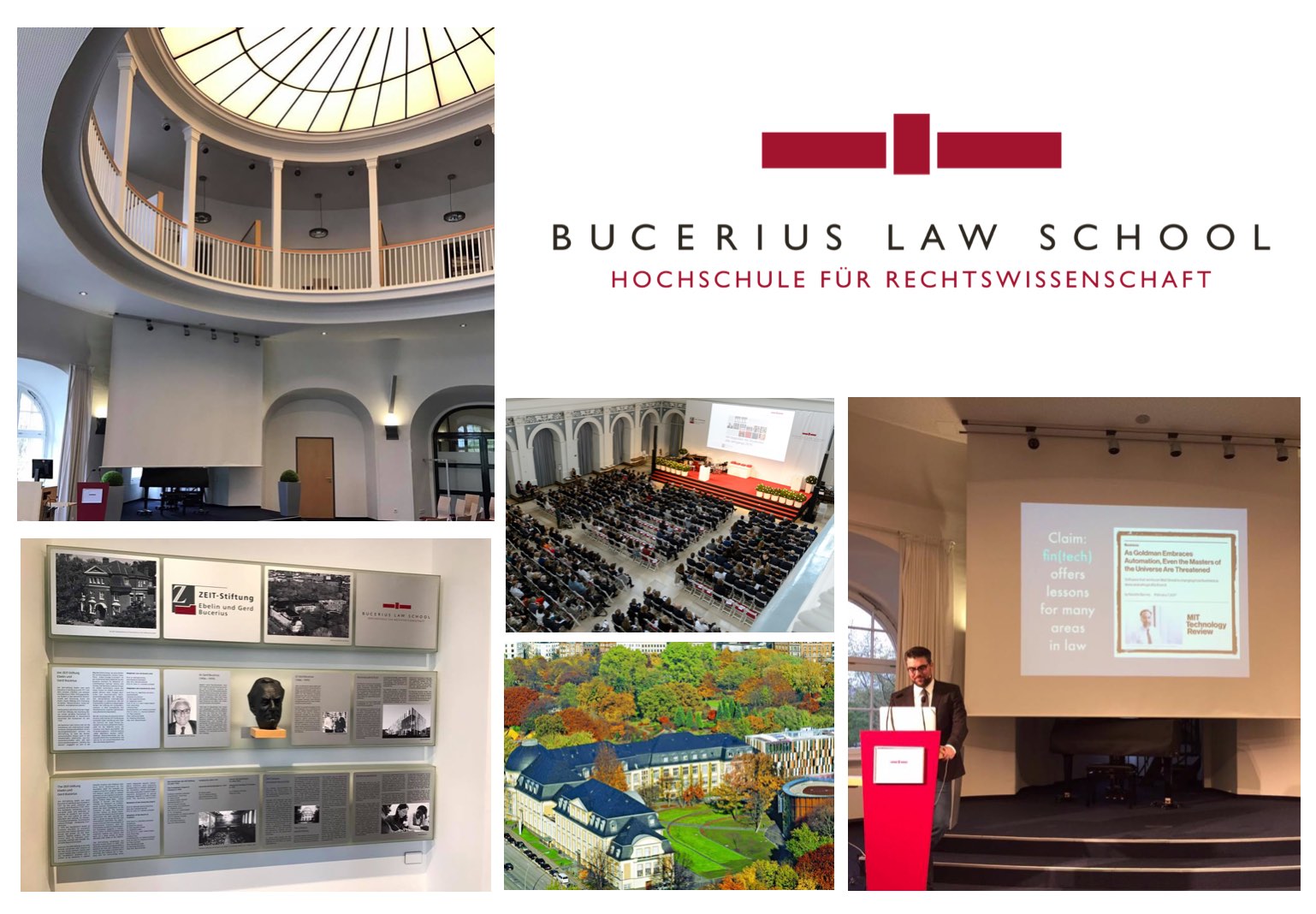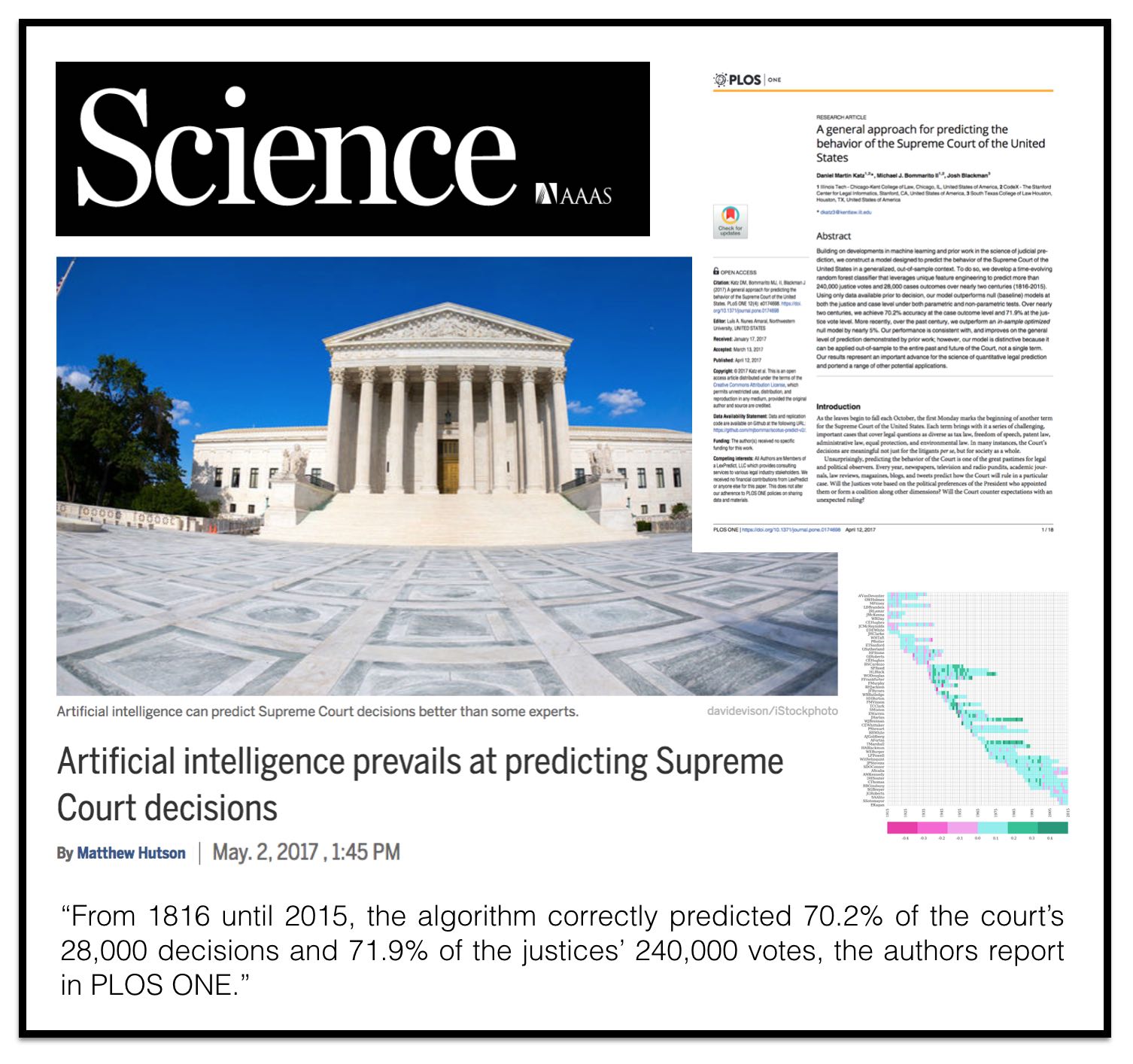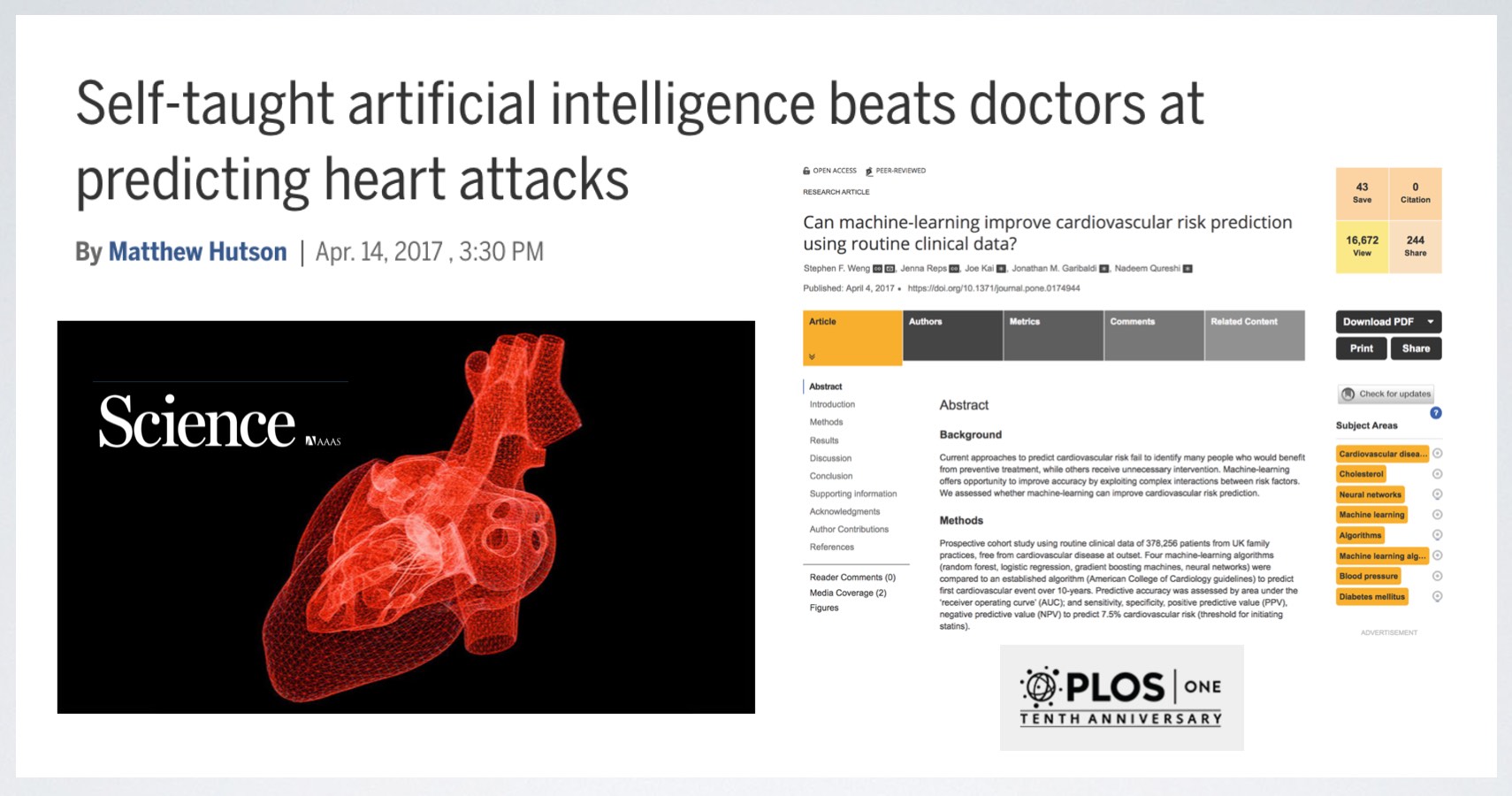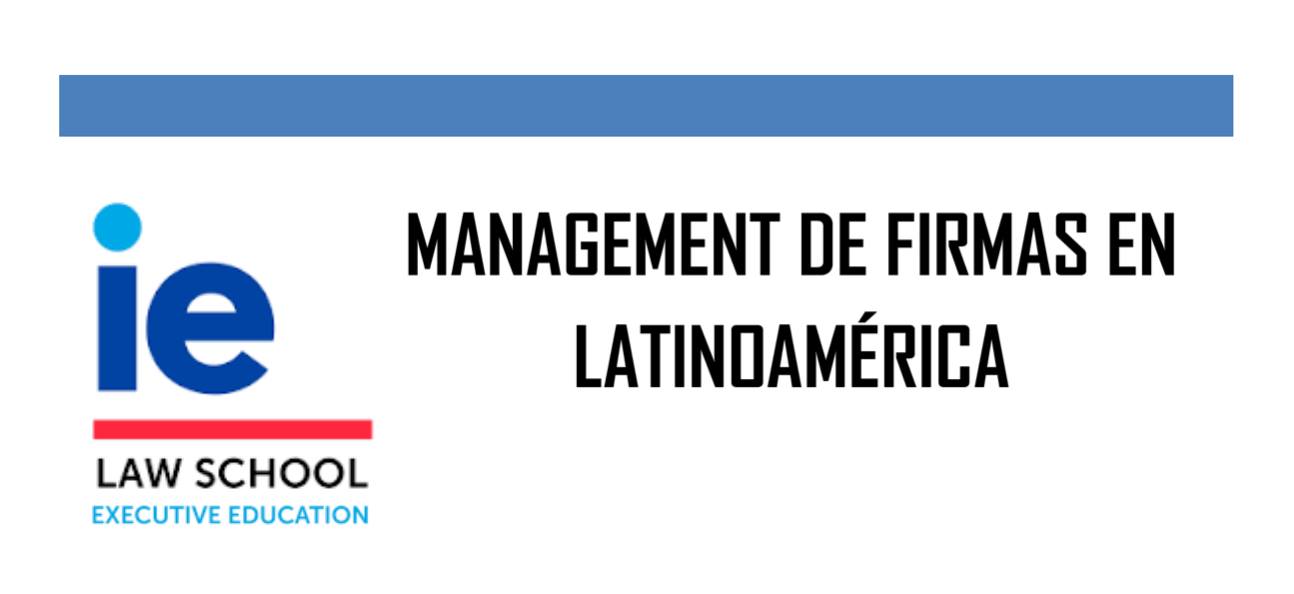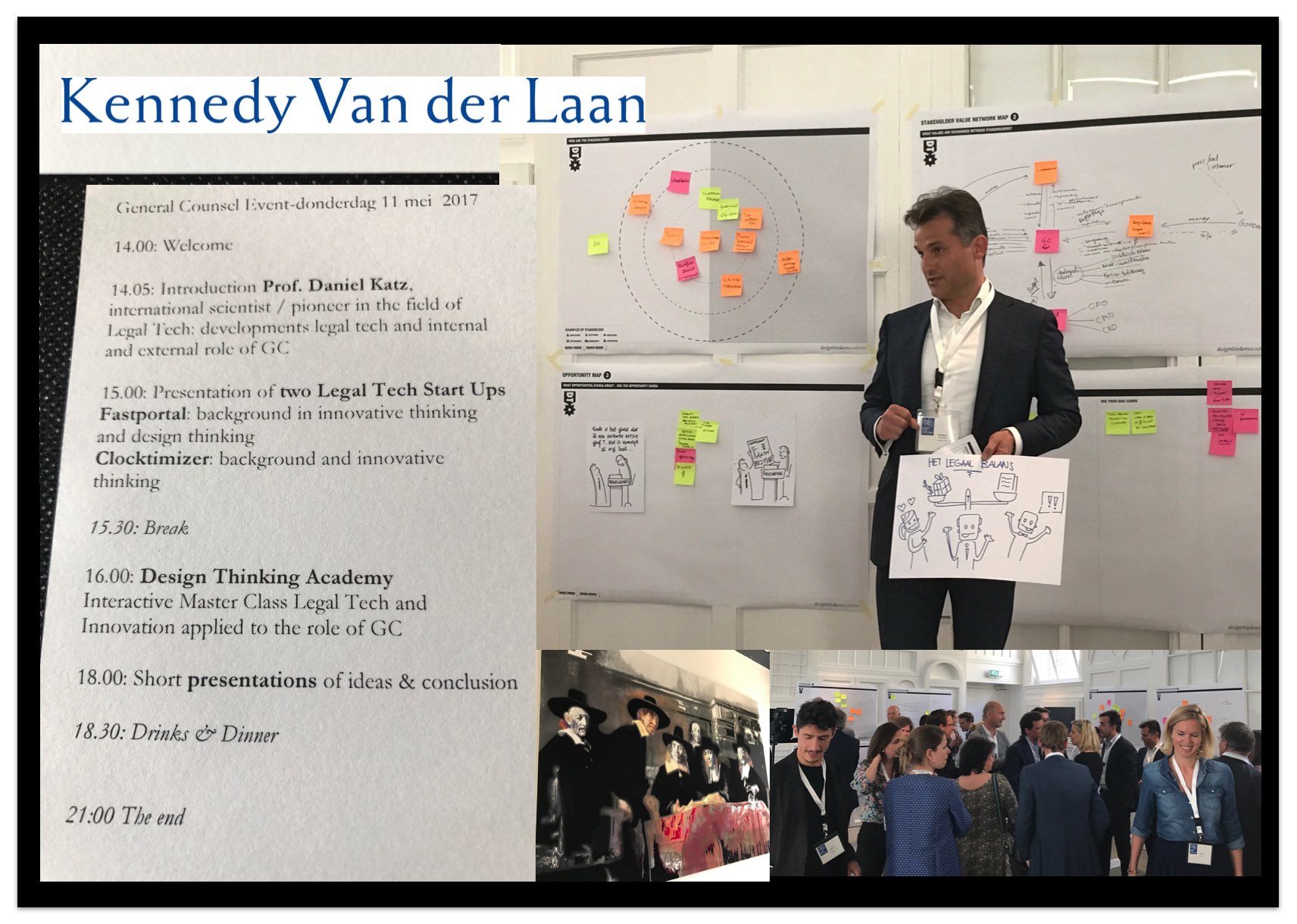
As my part of my final day in Amsterdam – it was my great pleasure to join with my friends from the Dutch Law Firm – Kennedy Van Der Laan (co-founded by the Mayor of Amsterdam Eberhard van der Laan) for a Legal Innovation Event. The event combined sessions in data, technology and design thinking for a variety of European General Counsels.
Speech at the Dutch Legal Tech Meetup – Amsterdam
A great group here at the Dutch Legal Tech Meetup (the overall community has more than 800 members) – yesterday I spoke at a special student focused session! Thanks to Jelle Van Veenen Jeroen Zweers for serving as my hosts.
Lexpo 2017 Amsterdam – The Legal Innovation Event
Legal Innovation is a global phenomena. US, UK, Canada, Australia, Continental Europe, South America, Asia, Central America, Africa, etc. (and new events in new places popping up everyday).
My view is that despite jurisdiction differences – lawyers are lawyers. No matter where I travel they are a recognizable species with similar business, technology and process improvement challenges.
Lexpo 2017 brings this conversation to the Netherlands for the second straight year. I will be presenting on Artificial Intelligence and Law.
The Machine Learning as a Service (#MLaaS) Ecosystem Grows … Bonsai as a #MLaaS Implentation Company
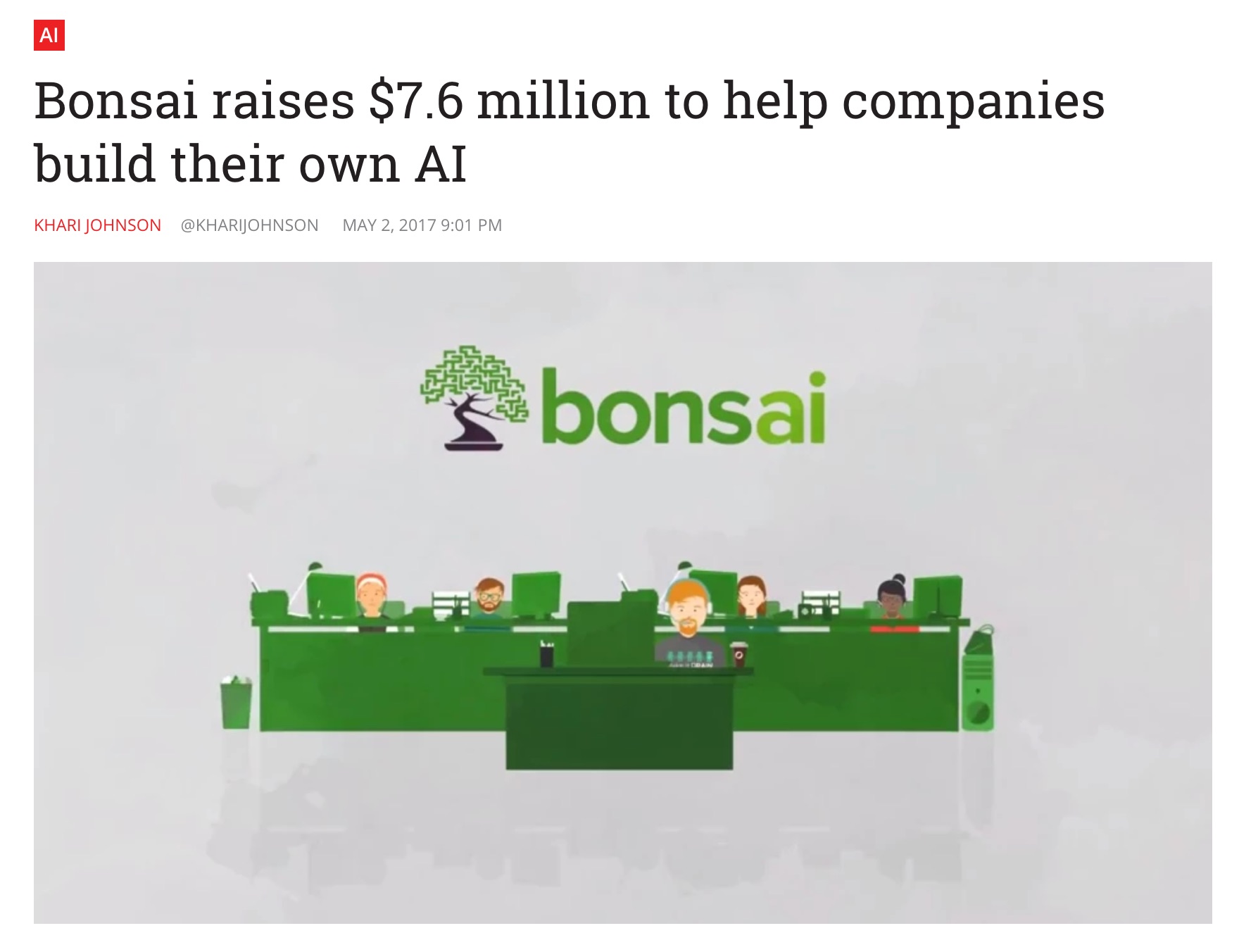 From Venture Beat – “AI startup Bonsai has raised $7.6 million to grow its platform that simplifies open-source machine learning library TensorFlow to help businesses construct their own artificial intelligence models and incorporate AI into their business.”
From Venture Beat – “AI startup Bonsai has raised $7.6 million to grow its platform that simplifies open-source machine learning library TensorFlow to help businesses construct their own artificial intelligence models and incorporate AI into their business.”
Harvard Law Seeks to Attract STEM Students
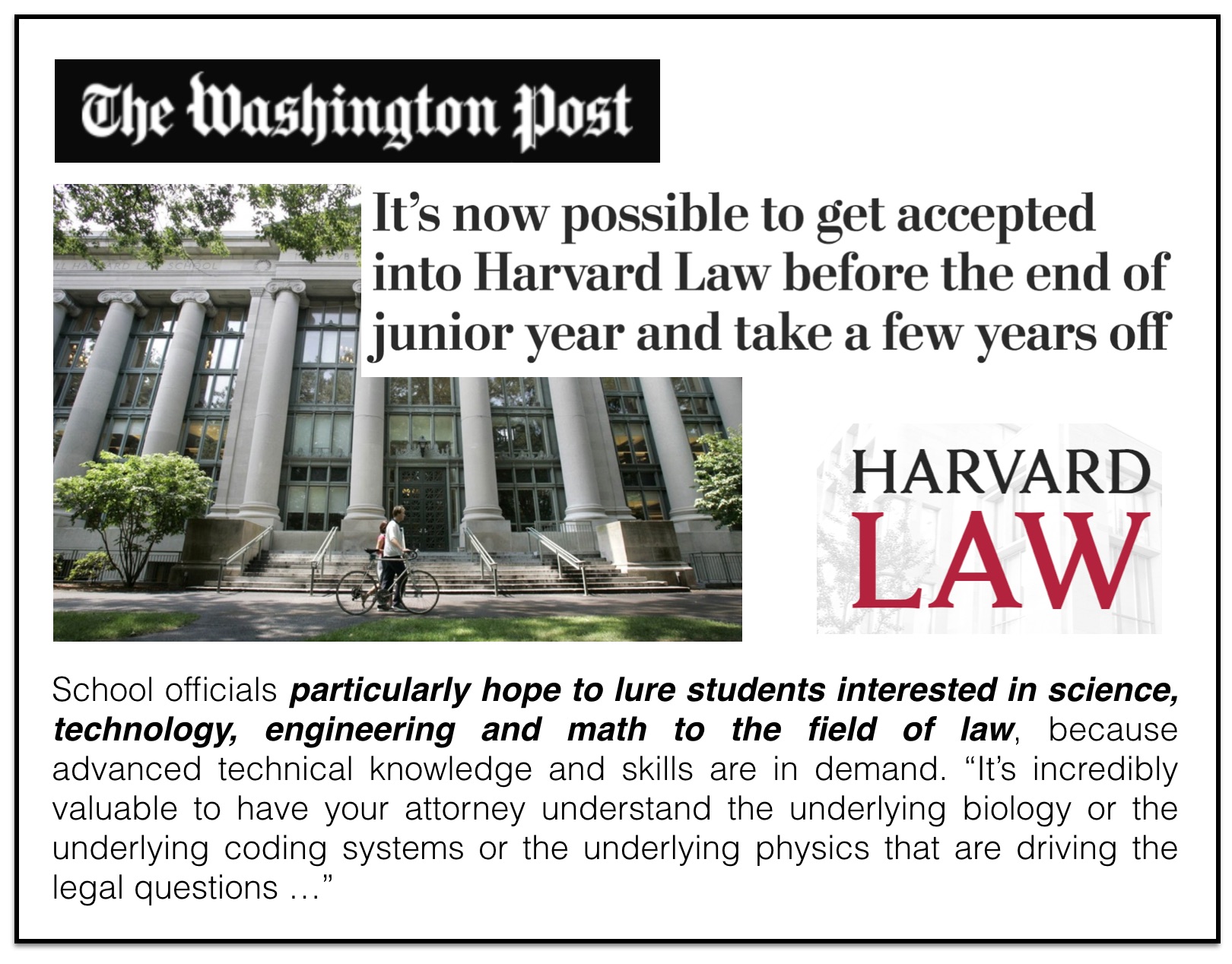
There is an old adage which states that “Innovation is doing the obvious before it is obvious to others.” Suffice to say – this is a totally obvious but it also very correct. Getting at least some STEM folks to help lead law forward is really important for the future of this field. So kudos to Harvard for doing this – particularly because as they say in the NFL — this is a ‘copycat league.’
“School officials particularly hope to lure students interested in science, technology, engineering and math to the field of law, because advanced technical knowledge and skills are in demand. “It’s incredibly valuable to have your attorney understand the underlying biology or the underlying coding systems or the underlying physics that are driving the legal questions,” said Jessica Soban, associate dean for admissions and strategic initiatives.
It is worth noting that this quote frames the effort as working to develop lawyers for technology – which is the right way to sell this idea to a conservative (intelligent but not technically inclined) faculty.
The obvious flip side of this is that some subset of these same folks will also help champion technology (and innovation) for law itself. I would expect HLS to try to make some sort of play in this direction (but would need more folks with relevant technical skills on the core faculty) … perhaps they could consider a Joint Venture with that other academic institution in Cambridge ?
Presentation at Legal Tech Lecture Series — Bucerius Law School – Hamburg
It was a great honor to deliver an address as part of the Legal Tech Lecture series at Bucerius Law School here in Hamburg, Germany. Bucerius Law School was rated the number one law school in Germany by CHE-University ranking.
Self-Taught Artificial Intelligence Beats Doctors at Predicting Heart Attacks (Via Science News / Plos One)
From Science News – “In the new study, Weng and his colleagues compared use of the ACC/AHA guidelines with four machine-learning algorithms: random forest, logistic regression, gradient boosting, and neural networks.”
We teach 3 out of 4 of these methods in our Legal Analytics Course (which is a machine learning for lawyers class).
The underlying paper was published in Plos One (one of my favorite journals) and the location where we recently published our US Supreme Court Prediction paper. In that paper, we use a time evolving random forest (with the novel twist of a tree burning protocol).
Management de Firmas En Latinoamérica – Miami Workshop with IE Law School Madrid
It was a pleasure to give a half day workshop to Law Firm Leaders from across Central America and South America as part of the IE Law Executive Education Program here in Miami. Thanks to all of the participants!
Daniel Martin Katz Named Fellow Elect of the College of Law Practice Management – Ceremony at 2017 Futures Conference in Atlanta, Georgia
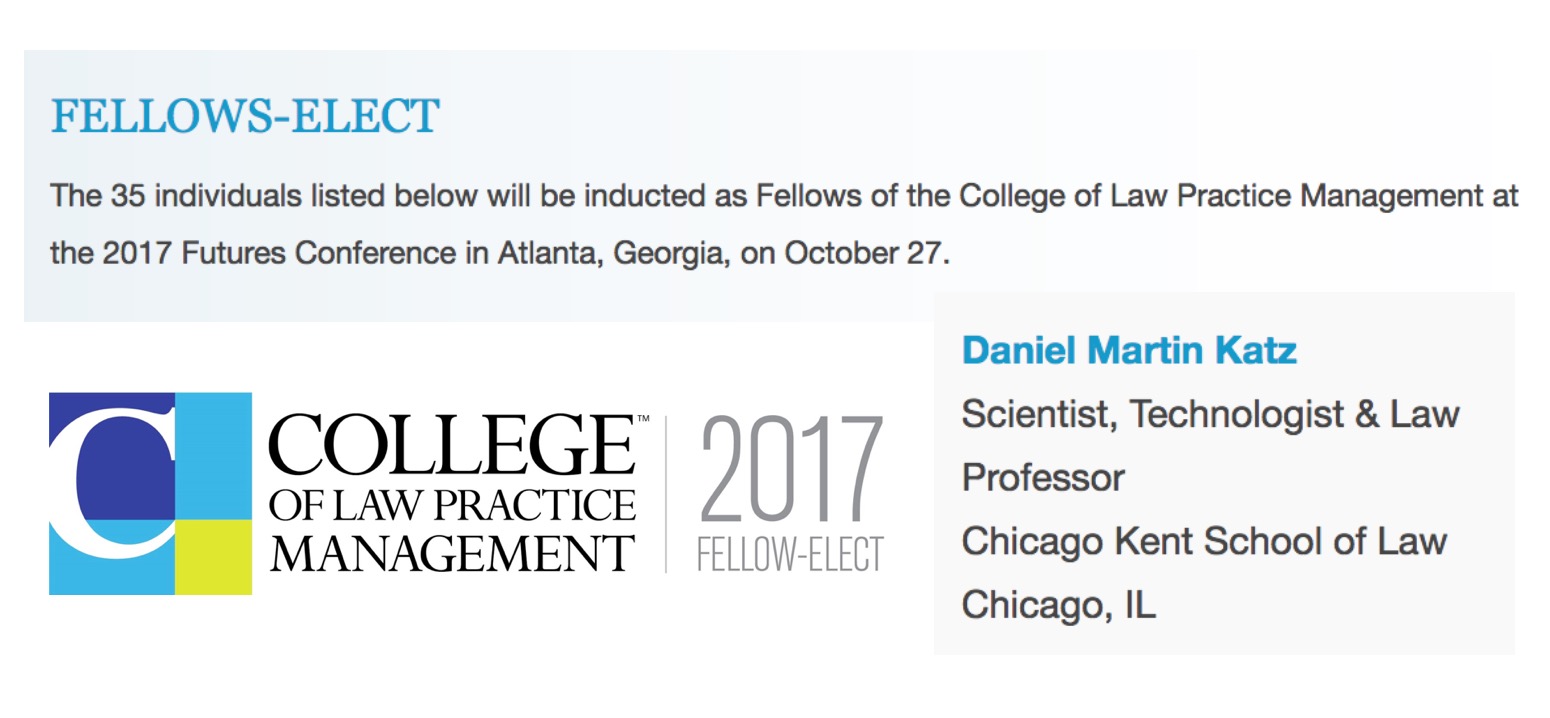 I am honored to be Elected as a Fellow of the College of Law Practice Management. The College includes legal technologists, law firm leaders, corporate counsel, etc. I am looking forward to joining many friends and colleagues who are members of the college …
I am honored to be Elected as a Fellow of the College of Law Practice Management. The College includes legal technologists, law firm leaders, corporate counsel, etc. I am looking forward to joining many friends and colleagues who are members of the college …
A General Approach for Predicting the Behavior of the Supreme Court of the United States (PLOS One) – Final Version April 2017
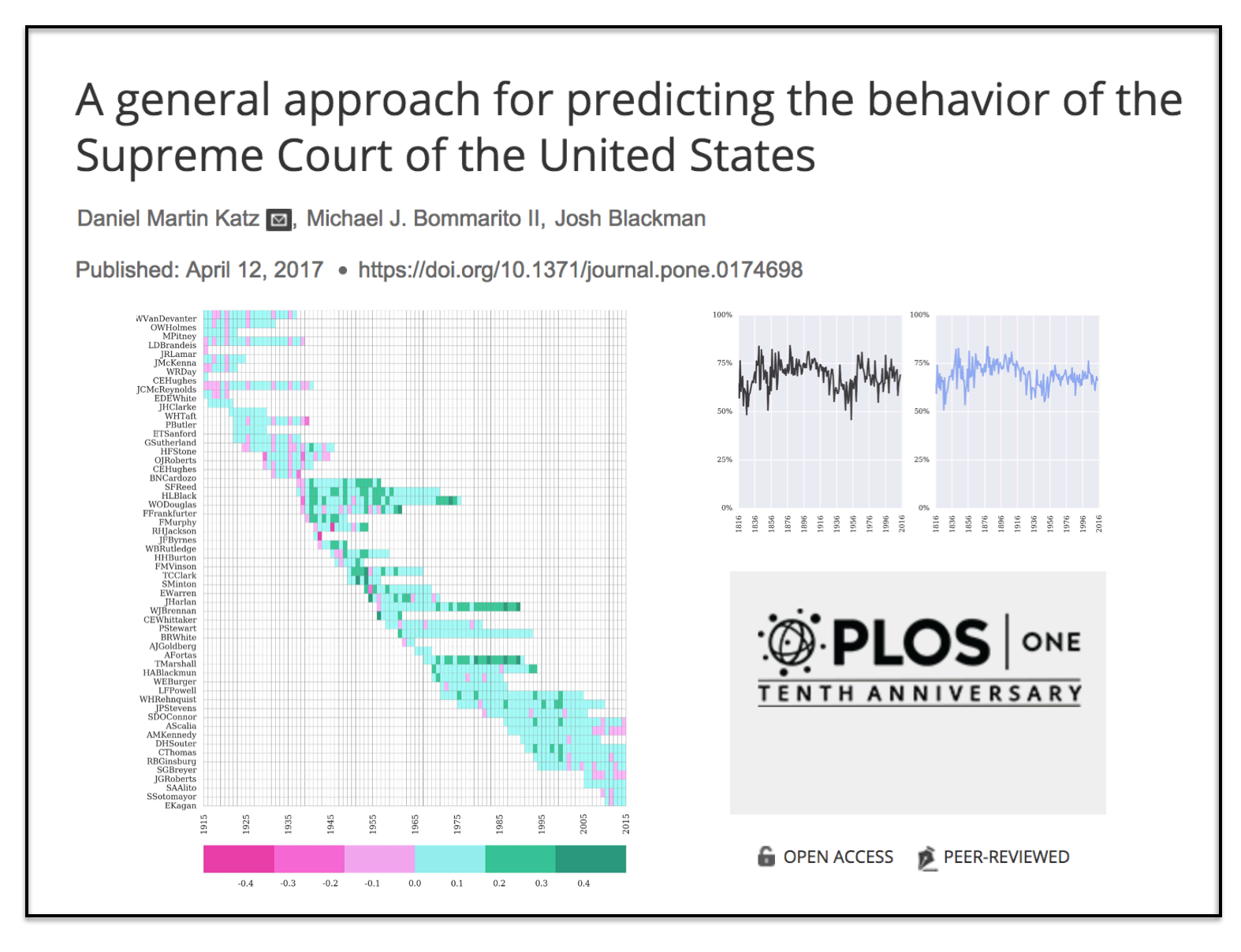 Our SCOTUS Prediction Paper is now live in Plos One (one of my favorite journals) — very happy about this (thanks to Luís A. Nunes Amaral of Northwestern University for serving as our Editor). #OpenSourceScience #SCOTUS #LegalAnalytics #LegalData #QuantitativeLegalPrediction
Our SCOTUS Prediction Paper is now live in Plos One (one of my favorite journals) — very happy about this (thanks to Luís A. Nunes Amaral of Northwestern University for serving as our Editor). #OpenSourceScience #SCOTUS #LegalAnalytics #LegalData #QuantitativeLegalPrediction
FutureLaw 2017 at Stanford CodeX
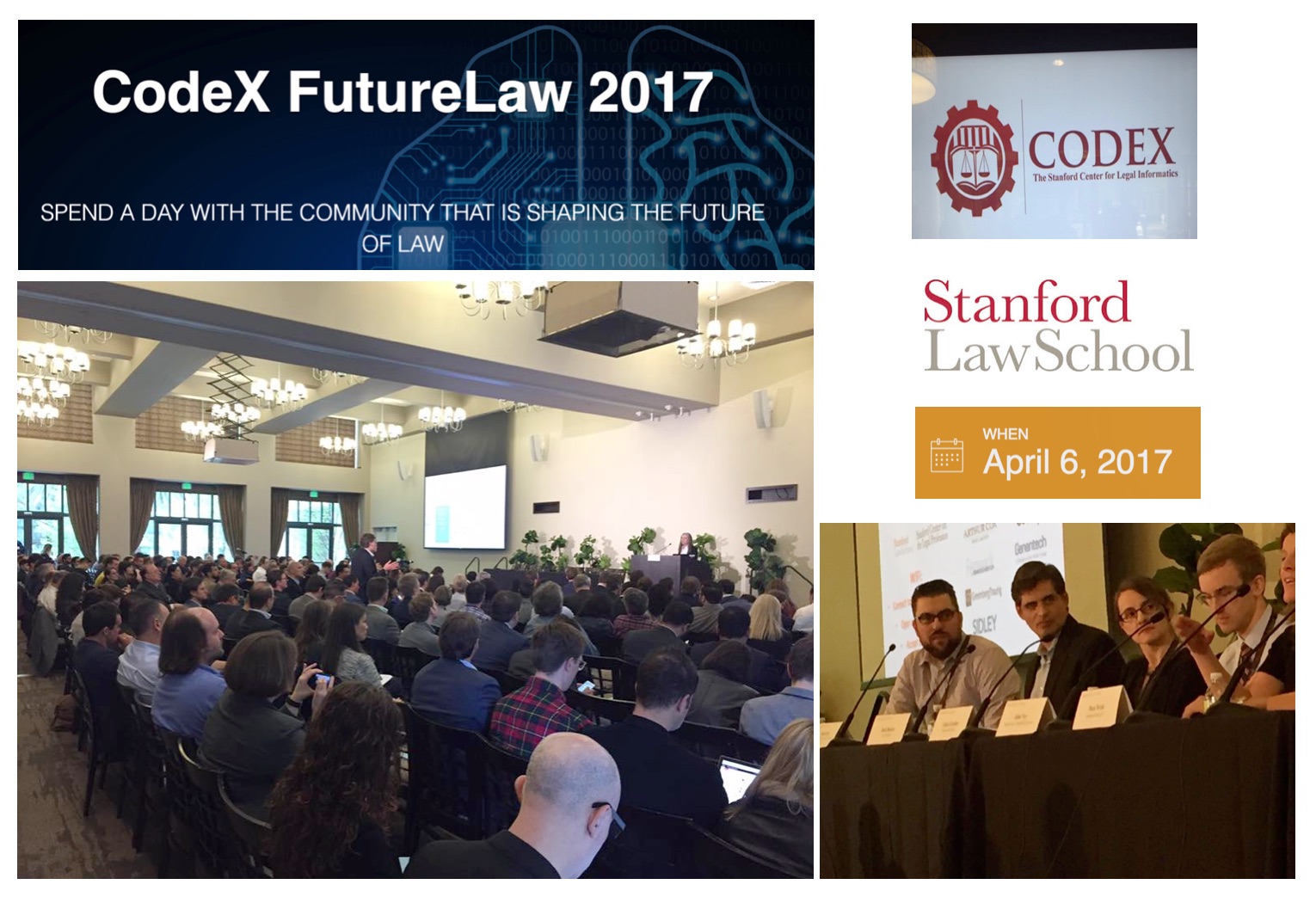 Yesterday was the 5th Annual Future Law Conference at Stanford CodeX. As always, it was an exciting day to see the best in cutting edge technology (including chatbots, predictive analytics and rules based A.I.). I moderated a morning panel entitled The Perils and Promise of Predictive Analytics in Law. Overall – it is clear that the community is growing both domestically and abroad.
Yesterday was the 5th Annual Future Law Conference at Stanford CodeX. As always, it was an exciting day to see the best in cutting edge technology (including chatbots, predictive analytics and rules based A.I.). I moderated a morning panel entitled The Perils and Promise of Predictive Analytics in Law. Overall – it is clear that the community is growing both domestically and abroad.
Harnessing Legal Complexity – Bring Tools of Complexity Science to Bear on Improving Law (Ruhl, Katz & Bommarito in Science Magazine)
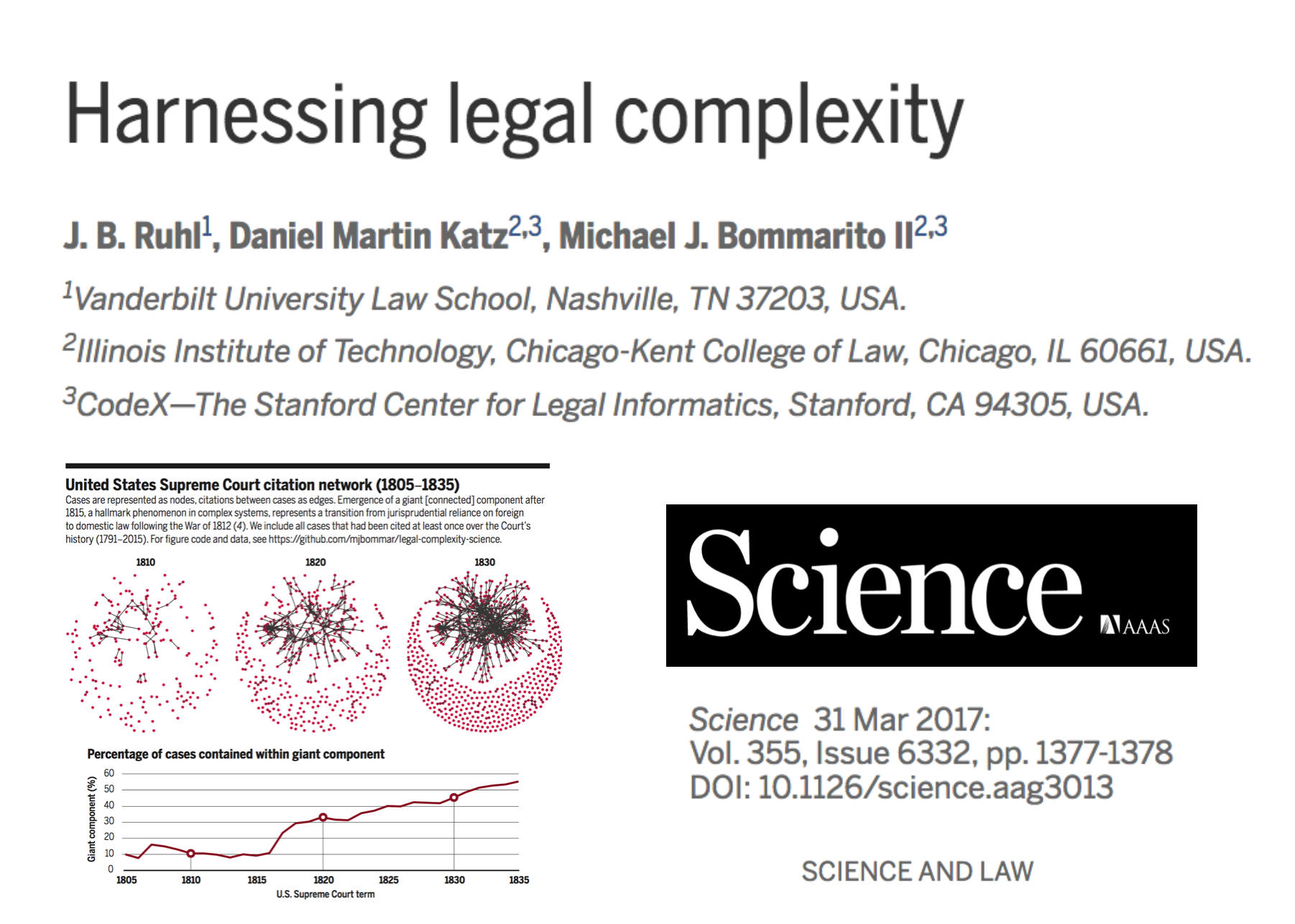
We have been working in the field of Law + Complex Systems for more than a decade (starting during the time that Mike Bommarito and I were graduate students at the University of Michigan Center for the Study of Complex Systems) – today we took a big step forward with publication our article in the March 31 Edition of Science Magazine. It was a great pleasure to work with J.B. Ruhl & Michael Bommarito on this paper!

